Research
Help shape the future of philosophy of education through pioneering graduate research at Teachers College, Columbia University. As a graduate student in the Philosophy and Education program, you’ll have opportunities to conduct research independently and to work side-by-side with world-renowned philosopher-scholars who are leaders in the field. You’ll follow in the footsteps of groundbreaking researchers, from John Dewey and William Heard Kilpatrick to Jonas Soltis and Maxine Greene.
Recent Dissertations
Recent dissertations include studies of equity in access to education, Max Weber's conception of education, mindfulness and meditation in education, conceptions of childhood in philosophy and literature, the educational philosophy of Jane Addams, the use of reflective teacher narratives in teacher education, cosmopolitanism and education, the nature of authentic learning, and human rights education in light of Kant's moral philosophy.
Read about selected, recent dissertations below.

Brandon Buck
Defended dissertation, 2020
This dissertation starts from the position that white people need to take responsibility for patterns of deep racial ignorance that pervade white communities. The core research question is this: How can white schools in white communities more effectively disrupt and undermine the proliferation of white ignorance in white communities?
To hazard a plausible answer, I draw on contemporary research in social epistemology and critical race theory to build a framework that clarifies the key elements of white ignorance. From there, I illustrate how scholars can use the framework to guide research into mostly white schools to better understand how they reproduce patterns of white ignorance. Then, I illustrate how teachers can use the framework to interrupt white ignorance in their school and classroom.
Finally, I show how teacher educators can use the framework to transform social justice teacher preparation. Ultimately, my project conceptualizes an approach called "racially responsive pedagogy," which serves to formalize a common diagnostic and pedagogical methodology between culturally responsive pedagogies and anti-white ignorance pedagogies.
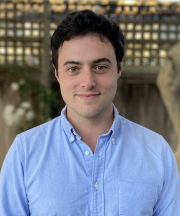
Tomas Rochas
Defended dissertation March 10, 2020
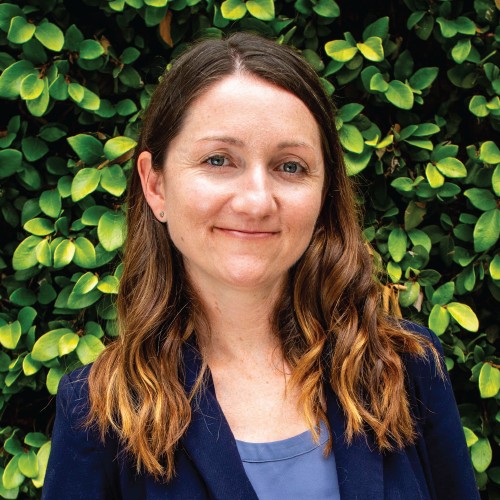
Jessica Jean Davis, Visiting Assistant Professor of Philosophy at Notre Dame of Maryland University
Defended dissertation, 2019
Responding to growing efforts to bring philosophy into K-12 schools in the U.S., this dissertation takes up pedagogical and political concepts used by Jacques Ranciere in order to reflect on the motivating principles and limitations of bringing philosophy to schools. Ranciere critiques schooling as a mechanism by which socio-economic inequality is justified and argues that academic philosophy, following the rationalist tradition attributed to Plato, is in fact complicit in this justificatory process. Given his staunch position, it might seem that it is impossible to implement philosophy in schools using Rancierian principles. I argue that there is a practice of philosophy in schools to which Ranciere may be sympathetic on a theoretical level. In order to support my position, the principle aim of this work is to provide evidence that Ranciere's works reflect specific critiques and alternative values of both schooling and philosophy that are also represented in the principled pedagogical practice of community of philosophical inquiry (CPI). I begin to think through the possibility of CPI in new and existing schools, as well the way that the notion of possibility itself figures into this line of inquiry. My thesis is that CPI is the philosophical practice most appropriate for schools given the critiques and alternative values of schooling and philosophy shared by Ranciere and CPI, but that Ranciere may help to inform the way the practice is implemented.
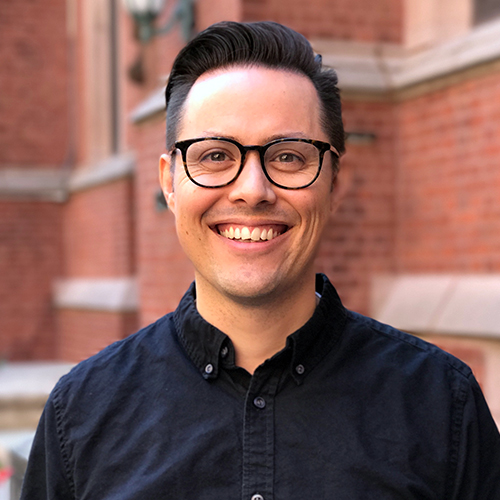
Nicolas Tanchuk, Assistant Professor, School of Education, Iowa State University
Defended Dissertation, 2019
A long tradition of progressive pedagogy, running from Jean-Jacques Rousseau and through the work of John Dewey, argues that it is ethically and politically important for students to learn to co-direct the process of inquiry. In a series of recent articles, a group of cognitive scientists (hereafter called ‘DI theorists’) has argued that due to the nature of human cognitive architecture, student-led instructional designs are likely to be less effective than fully teacher-led instructional designs and to exacerbate achievement gaps. Were DI theorists correct, contrary to the intentions of many educators, a great deal of progressive pedagogy would be likely to have negative effects on educational justice. In this dissertation, I argue that the framing of the debate in cognitive science misconstrues the ethical and political value of treating students as cooperative designers of educative experiences.
To defend this controversial claim, I advance a Deweyan approach to ethics and justice in instructional design against two recent philosophical challenges. The first challenge, which I call ‘Dewey’s grounding problem’, asserts that Dewey’s appeal to the single ethical and political value of learning is unjustified against dissent and oppressive of reasonable pluralism. The second challenge, which I call ‘Dewey’s problem of elitism’, argues that his call to promote the common good of learning in ethics and politics will sometimes permit or require elitism, aristocracy, or tyranny. Based on the Deweyan ethos I defend, I trace four principles of just instructional design to reassess the claims of DI theorists. I argue that integrating DI theorists’ insights about efficacy and equality as means to create a student co-led community of inquiry confirms many educators’ intuitions: that student-led designs are important parts of developing the skills of inquiry, are well placed as culminating tasks, and are best phased in on a developmental pathway towards greater student independence.
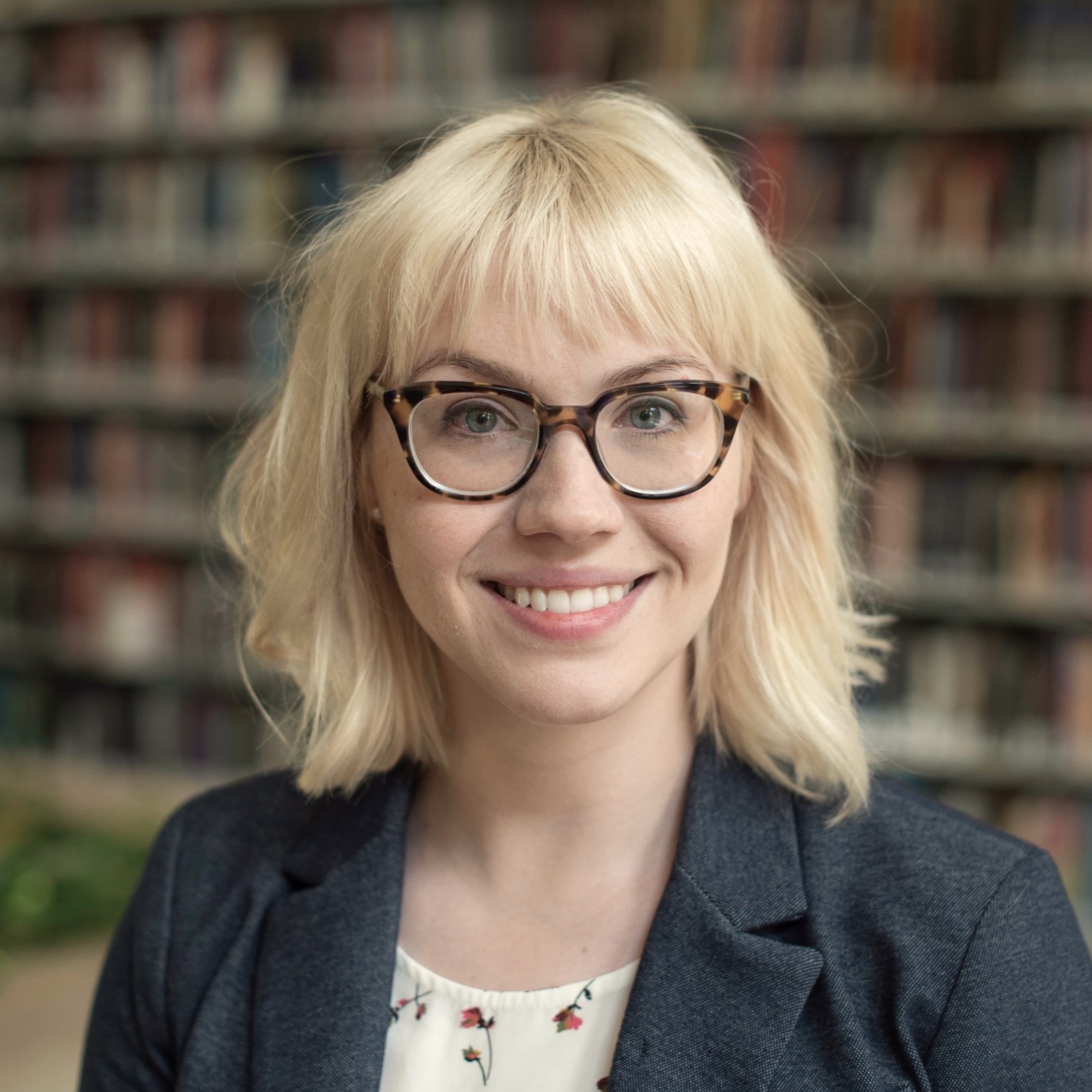
Dr. LeAnn Holland is an Assistant Professor of Education and the Coordinator of the Graduate Program at St. Lawrence University in upstate New York
Defended dissertation, 2018
This dissertation investigates, through weather metaphors in nature writing, how outdoor learning can be transformative. Although we have a robust history of books, essays, and poetry about experiences in weather-rich environments, education as a theoretical and applied field still lacks a philosophical foundation upon which to improve and expand outdoor pedagogy. Rather than proposing that the hermeneutical study of weather metaphors will lead to prescriptive lessons outdoors, this research aims to reveal the philosophy of transformative learning immanent in our experiences. With an increased philosophical understanding of the aesthetically transformative dimensions of outdoor experience, when our senses are most exposed, educators may take the next step of exploring what these experiences might do for the holistic education of students. This dissertation’s recognition of the aesthetic experiences students have in weather-saturated spaces promises to generate a richer definition of an effective learning environment.

Defended dissertation in 2018
This study aims to reconceive the meaning of leisure in school using John Dewey’s theory of education. Though the English word “school” and the Greek word “scholé,” which means leisure, are etymologically related, it is almost impossible to find any relationship between them in contemporary schools. Posed differently, for modern people school is not a place of leisure any more. Modern people understand leisure as a time not to work, as an escape from work. However, for the ancients leisure was a very sacred activity through which they could find their true identity. Therefore, in considering the original meaning of the term leisure, reviving leisure in school means to make a classroom sacred. For Dewey, the necessity for the teacher to provide an appropriate educational environment for the development of a student’s potential is no less sacred than the duties of a priest. This kind of inquiry can help contemporary educators revitalize the deepest meanings in the project of education.
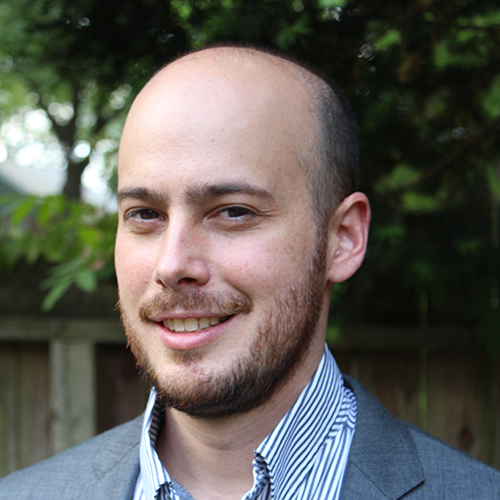
John Fantuzzo is a visiting Assistant Professor of Education, Valparaiso University
Defended dissertation in 2016
The purpose of this dissertation is to propose a Weberian philosophy of education. I understand philosophy of education to be a field dedicated to reflection upon the educator’s practice. My project arises from the contention that too many contemporary philosophers of education have, in the name of realism, exchanged reflection on educational practice for reflection on the political dimensions of educational institutions, thereby engaging in some variety of applied political philosophy. Treating philosophy of education as applied political philosophy demotes the significance of educational practice and thus the significance of the field itself. The central question this dissertation takes up is how philosophers of education might lend significance and priority to educational practice in a manner that does not ignore the realities of educational institutions. My argument is that a Weberian philosophy of education—a philosophy based on social theorist Max Weber’s conception of education—can provoke reflection upon the ideal qualities of educational practice amidst a non-ideal and pluralistic society. A Weberian philosophy of education revives a vision of students as particular persons, prioritizes calling as an educational aim, galvanizes the dignity of the educator’s cause, and points towards the responsible re-enchantment of society.
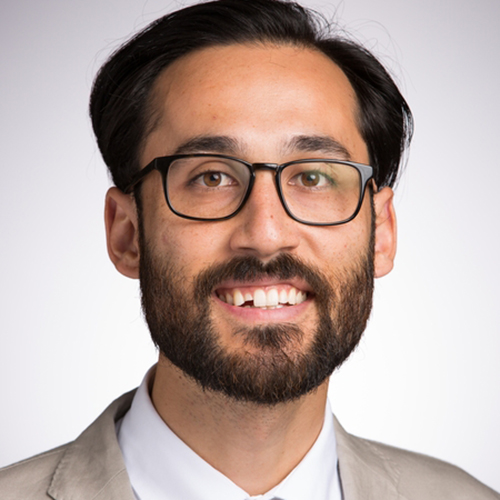
Yoshiaki Nakazawa is an Assistant Professor of Education, Valparaiso University
Defended dissertation in 2016
The way in which Plato’s uses of myth relate to his theory of moral education and his conception of philosophy is examined. Plato’s use and conception of myth (muthos) is notoriously difficult to determine, however, especially because it is difficult to determine whether and in what way Plato wishes to contrast muthoswith logos. I argue that muthos plays an integral role in Plato’s philosophical investigation and dialectic, and therefore it is best understood as a “guise” of logos.Myth is not a suspension nor transcendence of logos, as scholars have suggested. Plato uses myth when he is concerned with moral education, that is, the moral transformation of the reader and the interlocutor. According to this line of interpretation, Plato’s myths play a heuristic role in service of his moral pedagogical goals. I outline Plato’s pedagogical goals in the context of his theory of moral education, and conclude with some suggestions about the integration of philosophical myths in educational settings today.

Defended dissertation in 2015
It is well understood that a concept of temporality is central to Dewey’s later work, finding its culmination in his essay “Time and Individuality” (1938). What has not been either acknowledged or established is the fact that a detailed and sophisticated concept of temporality, one which is fully in accord with his later work, was already present in Dewey’s early work, particularly in his essay “The Reflex Arc Concept in Psychology” (1896). This thesis therefore seeks to demonstrate not only that such a concept of temporality exists in Dewey’s early work, but also the nuanced nature of that concept of temporality, particularly in its function as a central, grounding component of the preconditions required for Dewey’s concept of experience. The nature of Dewey’s concept of temporality will be explicated through close analysis of Dewey’s texts, particularly his Reflex Arc essay, his central statements on education contained in Democracy and Education (1916), and the comprehensive statement of his mature philosophy found in Experience and Nature (1925). With the nature of Dewey’s early concept of temporality established, this thesis argues that it in fact constitutes a key contribution to a tradition of philosophy of temporality which starts with the work of Henri Bergson, continues with the philosophy of Martin Heidegger (most saliently with Being and Time), and finds its full contemporary statement in Gilles Deleuze’s work on time, based on his concept of ‘the virtual.’ The fact that Dewey’s concept of temporality, as with that of Deleuze, is based on a sophisticated understanding of contemporary scientific findings is also explored, with the argument made that possessing such a foundation in scientific thought allows Dewey’s concept of temporality to become fully compatible to current research in psychology, particularly as it concerns educational psychology.

Defended dissertation in 2015
My main goal while writing this dissertation became to mark off a differend between John Dewey’s philosophy of education and a couple of its contemporaneous Pragmatist readers, on the one hand, and Jean-François Lyotard’s postmodern condition and a couple of its contemporaneous readers sympathetic to the French philosophy of difference, on the other. The Kantian sublime feeling is the pivotal point to establish a differend here between these two traditions. I hope to show the reader the possibility that this differend has to become a litigious situation in educational research. Therefore, the practical impact of this dissertation derives from the sense that a litigious situation shapes the understanding of philosophical discourses organized to produce practical knowledge to form teaching practices in teaching preparation. This dissertation thus creates the space to debate the role of the teacher/-educator in Colleges of education. In this case, the permanent Hegelian deposit in Dewey’s thought, his own trajectory along the historical lines of the construction of the American Bildung, and ultimately his theory of communication are crucial in the establishment of a litigious situation in educational research between contemporaneous thinkers in the field of philosophy and education. In the Preface, I thematize the infancy of a voice that precedes language in relation to the Kantian sublime feeling in the postmodern condition. That the work of thematizing this voice based on the sublime condition is lacking in John Dewey’s philosophy of education is the problem this thesis addresses. In the Introduction, I contextualize the main sources in my attempt to interpret the permanent Hegelian deposit in Dewey’s thought and his trajectory along the historical lines of the construction of the American Bildung. I also contextualize the main source in my attempt to interpret a voice based on the sublime condition. Hence, chapter one presents the renewal of Dewey’s philosophy of education. It was based on Dewey’s reconstruction of Hegel’s absolute idealism. In this case, I focus on Dewey’s metaphysical concerns on judgment’s movements, meaning creation, and social participation as they find a domicile in the American Bildung as a mode of education whose purpose is growth. I conclude this chapter by pointing out to a litigious situation in educational research based on the critique that postmodernists fail to achieve growth in experience because they linger too long to avoid consummation once they juxtapose consummation and foundationalism. In chapter two I focus on the value that Jim Garrison and Larry Hickman attribute to Dewey’s theory of communication at the same time I establish another litigious scene in educational research by criticizing their positions, which are rooted on the notion of unity of experience in Dewey. The critique is based on the works of Gert Biesta and Pedro Pagni. The point of tension is twofold: the formers’ assumption that postmodernists lack a concern for the public to dwell in the arts; and the latter’s accusation that Dewey’s theory of communication implies that language become an antecedent element in experience and, thus, outside of experience. I also introduce the political philosophy of Hannah Arendt. She became crucial in this dissertation because she allowed me to connect Dewey and Lyotard. She criticizes Dewey’s appreciation for the problems of men as one detached from the reality of certain groups who had suffered the most particularly because of the advancements of democracy, science and technology. Meanwhile, Lyotard criticizes Arendt for rushing through the sublime feeling in her lectures on Kant’s Critique of Judgment . In chapter three I finally debate in more depth Lyotard’s reading of the Kantian sublime and the sense of terror of abandonment. I also introduce his reading of sensus communis in Kant, the distinction between sublime feeling and the aesthetic of sublime, and the notions of different and inhuman in education. I conclude by addressing the question regarding professional knowledge and skills and the role of the curriculum in what Lyotard means by philosophizing, which is rooted in the sublime feeling and the condition of the infancy of thought in the search for a voice in teachers preparation.
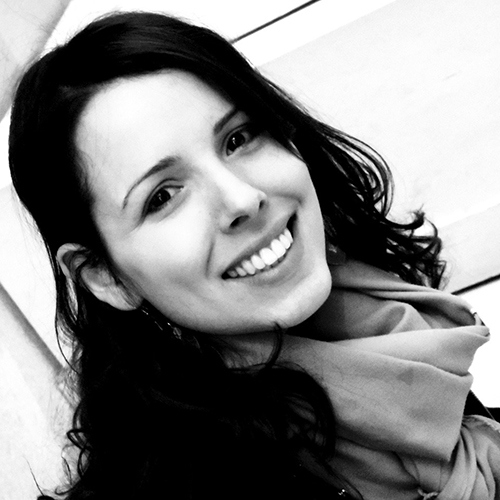
Carmen James is a Lead Instructional Designer for Online Education, General Assemb.ly
Defended dissertation in 2015
This study investigates the relevance of habits in education. Philosophers, from Aristotle to Montaigne to Rousseau to Dewey, positively and negatively portray habits. Philosophers of education have delineated habits worth developing and habits detrimental to the project of education. In the current era of high-stakes testing and accountability, there has been an increased interest in habits. Yet, the habits of interest in many educational settings today are often regimented and un-reflectively repetitive. Lists of habits that we can widely recommend and repeat across countless contexts are deemed useful because they are easily measurable and facilitate assessment, but they can lead to a practice of education that is inhumane and a profession of teaching that is marked by growing attrition.
A philosophically-grounded conception of habit has the potential to humanize learning. This study seeks to identify habits that are dynamic and responsive, those that can become the bases for lifelong learning. An account of dynamic habits and ways of modifying habits through experience and reflection has twofold implications for teachers. First, by reflecting on what they have learned and imagining new possible directions for their practice, teachers initiate the critical process of reconstructing habits, which allows them to improve their practice. Second, by cultivating dynamic habits, teachers are better equipped to model and actively teach thinking and reflection in the classroom with their students.
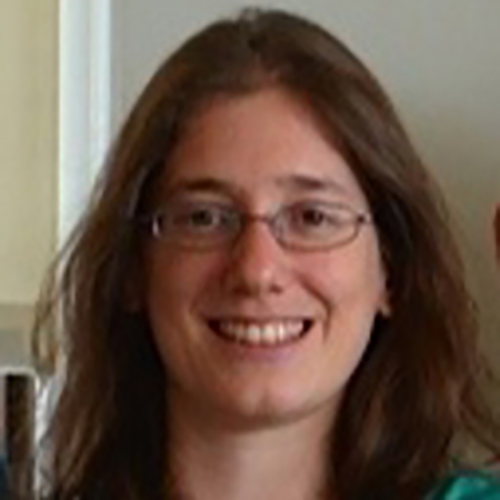
Cara Furman, Assistant Professor of Early Childhood Education, University of Maine, Farmington
Defended dissertation, April 28, 2014
As a former elementary school teacher and current teacher educator, Furman is interested in what helps teachers find meaningand be successful in their work. Furman’s dissertation responds to contemporary concerns about the quality of public education; most broadly, she takes up the question: how do we promote teacher flourishing? Then, focusing on more specific practices, she asks: How can we support the teacher to achieve success within the role of teacher? “Teaching is complex work that requires a professional who knows the content taught, has a deep understanding of individual students, and utilizes a host of methods for conveying information and creating community within a classroom. In my dissertation I argue that the successful teacher depends on what has been defined as practical wisdom—knowing what knowledge to apply to a given situation and how best to apply it.”
Furman’s dissertation looks closely at how those concerned with teacher education might help teachers develop this kind of practical wisdom. She argues that a particular type of narrative about teaching which she calls “Reflective Teacher Narratives” can be used to cultivate practical wisdom with teachers. Reflective Teacher Narratives are written in the first-person, they focus on individual students, follow a plot, and highlight teachers’ strengths and areas of difficulty. Furman’s dissertation elucidates the value of these narratives and shows how they provide a helpful model for communicating with educators.

Stephanie Burdick-Shepherd, Assistant Professor at Lawrence University
Defended dissertation, February 26, 2014
In her dissertation, Stephanie Burdick-Shepherd argues that philosophy must uncover conceptions of childhood that open up complexities rather than dismiss or collapse them. Burdick-Shepherd engages these complexities through a reading of rich descriptions and inquiries of childhood in texts of philosophy and literature.
“It became increasingly apparent to me as I worked through philosophical texts such as, Democracy and Education, Emile, and The Second Sex, that childhood served as a limiting construct in philosophy and educational theory and practice. However, it can also serve as a creative and empowering concept.”
Burdick-Shepherd argues that cultivating habits of ‘reading for’ the concept of childhood can assist educators in engaging their teaching practice more meaningfully. “Uncovering the complexity of the concept of childhood invites educators to uncover ethical aspects of the educational relationship such as responsibility, recognition, acceptance of difference, acknowledgement of power dynamics, freedom, and growth. In this context, childhood functions as an ethical construct, a guiding value, in education.”
Burdick-Shepherd’s research was informed both by her personal experiences as a new mother and by her professional experiences as a Montessori teacher and early childhood educator. “These experiences illuminated for me the ways in which children and women are often marginalized and disempowered by social structures held up by centuries of canonized and rigid thought.”
By offering multiple ways of viewing childhood, Burdick’s dissertation illuminates new possibilities for working within an educational context. “My hope is that by placing childhood in the center of an intertextual and interdisciplinary dialogue between philosophy, educators, feminist thinkers, and literature I will be able to challenge aspects of these structures, making space for the important voices and work of women and children to change and influence our world.”
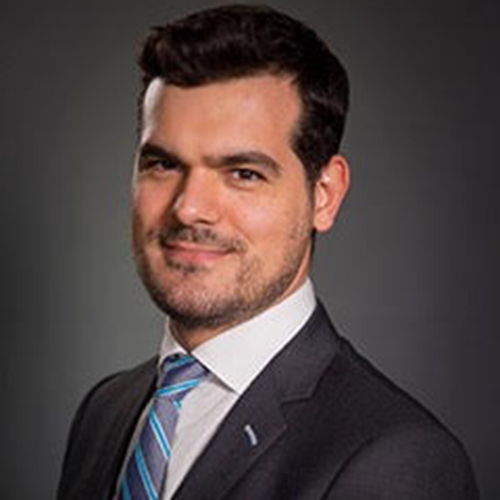
Gonzalo Obelleiro, Assistant Professor at DePaul University
Defended dissertation May 1, 2014
In his dissertation, Gonzalo Obelleiro develops a philosophical account of “value creation”as central to cosmopolitan education. Obelleiro became interested in cosmopolitanism as an undergraduate student at Soka University in California where he grappled with the various ways that educators conceive of global citizenship; “The idea of global citizenship education has become commonplace, but it is often not clear what we mean by it.” Obelleiro observed that conversations about global citizenship seemed to fall into two major camps: some scholars imagined a cosmopolitan curriculum as being an expansion of the national curriculum “in which American literature becomes world literature, American history becomes world history, and so on.” Others argued that global citizenship education should be about identifying with a universal humanity and universal moral values such that learners grow less attached to their own ways of seeing things and more open to learning from others.
Reflecting on his own experiences as an international student, Obelleiro felt that something important was missing from these available theories, “When we encounter people from different cultures, we have to negotiate our value differences, we compromise, we learn from one another, and we even transcend our differences and reach for universal values. Sometimes, however, the response is different. You and I might not share the same values, but in the moment of encounter, we share a situation.” Obelleiro argues that global citizens approach such encounters in a unique way, “Their default attitude is neither to impose their own values nor to defer to the values the other brings. Rather, they generate new values out of what they have in common, their shared circumstances.”
Obelleiro’s dissertation presents a theory of cosmopolitan education in which the main focus is this disposition towards value creation. He argues for the necessity of a cosmopolitan education that fosters openness, tolerance, and global perspectives. “Many of the challenges that we face as a species are global in scope and require coordinated action across national, cultural, and religious differences. It is imperative that we equip future generations with the moral and intellectual resources to respond to the challenges of the 21st century. I believe that global citizenship education should be part of that.”
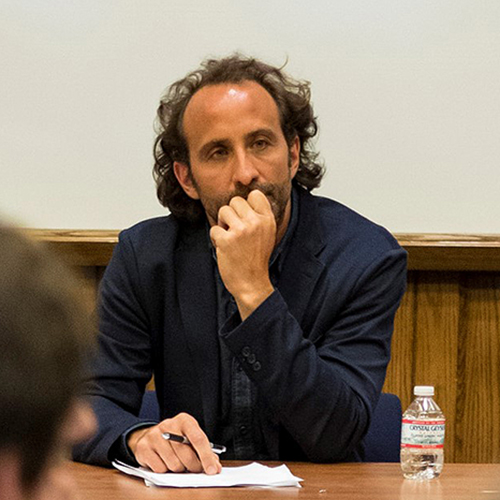
Jason Wozniak, Lecturer, American Studies, San Jose State University.
Defended dissertation on April 24, 2017
In his dissertation, Jason Wozniak asks how student financial debt, both at the university and K-12 level, shapes the educational experiences and subjectivities of indebted students. “Today we face a debt crisis. But there has been little analysis of how financial debt shapes educational experience and thereby intensifies the process of forming us as subjects.” Wozniak’s dissertation looks at the way the phenomenon of indebtedness has historically been an issue, particularly for marginalized groups, and how this phenomenon currently operates to produce a certain kind of indebted capitalist subject.
Following Marx, Wozniak believes that philosophy should do more than simply interpret the world; philosophers also have a duty to make meaningful interventions. In the second section of his dissertation he attempts to make such an intervention by asking if education can be a site of resistance. “In Making of the Indebted Man Maurizio Lazzarato has a line about how critical theorists need to create the vocabularies and concepts that will allow us to analyze deconstruct and critique indebted subjectivity. I’m continuing Lazzarato’s project by saying that we need to articulate theories, concepts, and practices that enable us to both critique education as an apparatus that shapes the indebted subject, but also transcends and disrupts that.”
Wozniak argues that individuals can practice types of “debt resistance,” both in and through education, that lead to liberation. “I claim that indebted subjectivity can be ruptured and liberated through educational practices. I return to this idea of scholé, which in ancient Greece meant suspension, school, and also leisure time. Part of my argument is that we need to carve out time — we need to democratize the concept of scholé by saying that everyone, especially those people that have been most impacted by debt, need freetime so that they can become something other than the indebted subject. Education can be that experience.”